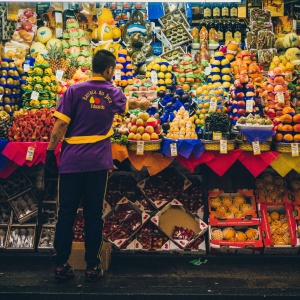
Successful programmes in both Global North countries (such as United States and Sweden) and Global South countries (including Paraguay and South Africa) demonstrate that public food procurement programmes have the potential to promote food security, stimulate biodiversity, revitalise local economies, foster sustainable production systems and more. However, these programmes can be hindered by a neoliberal government committed to financial austerity and the free market.
This paper examines Brazil's implementation and dismantling of the Food Acquisition Programme in order to provide important lessons to researchers and policy-makers and highlight the risk of the Public Food Procurement model.
Policy dismantling involves a change of a direct, indirect, hidden or symbolic nature that either diminishes the number of policies in a particular area, reduces the number of policy instruments used and/or lowers their intensity. Dismantling can be done in various ways and these are adopted based on how visible policy makers want the action to be, as summarised in the figure below.

Fig. 1 Macedo et. al. 2023, Types of dismantling strategies and their characteristics
In the 2000s Brazil introduced the Food Acquisition Programme as part of the Fome Zero (Zero Hunger), a priority national strategy for eradicating hunger in Brazil. The programme acquired food from family farms and distributed them via shelters, asylums, public hospitals, and orphanages to those in food insecurity, as well as using the produce in government food programmes such as communal kitchens and school meals. Between 2011 and 2018, the programme acquired more than 2 million tons of food from over 450,000 family farmers. The objectives of the scheme are summarised in figure 2. The scheme was widely cited as a successful case study of a public food procurement programme and used as a model in several other Global South nations.

Fig. 2 Macedo et. al. 2023, the objectives of the food acquisition programme.
Growth of the scheme was reversed in 2012, under President Dilma Rousseff, who used false accusations of corruption to negatively affect the efficiency of the scheme. The programme introduced bureaucratic tightening for the acquisition of products, the need to access online platforms for accountability and ten years of financial documentation from family farmers, all of which reduced access and discouraged participation. This was an instance of institutional densification, where new norms increased bureaucracy for farmers and constrained their participation.
Post global financial crisis, Brazil's economic conditions, and the subsequent controversial measures to address it, led to political instability in Dilma Rousseff's government. To maintain support, an alliance was forged with neoliberal actors leading to the centre-left government adopting an austere economic approach, implementing budget cuts, including a substantial reduction in funding for social programs such as the Food Acquisition Programme. The cuts decreased the programme's effectiveness, characterising a dismantling by default.
With economic situations worsening, a parliamentary coup instated a neoliberal leader and accelerated the dismantling of the programme. State restructuring led to the dissolution of departments in control of the Food Acquisition Programme and the responsibilities of these departments were successively transferred to sectors with lower authority.
With the election of Jair Bolsonaro in 2018, dismantling became highly visible. On the first day of Bolsonaro Presidency, the National Council for Food and Nutrition Security (CONSEA), the institution responsible for the social control of the Food Acquisition Programme, was dissolved. The organisational structure responsible was renamed and was led by actors linked to large agribusiness. Consequently, the programme came to be governed by political actors with no commitment to the agenda of food and nutrition security; the program was facing a dismantling by arena shifting.
In 2021, the programme was dissolved by Bolsanaro and replaced by a programme with a weaker set of commitments that did not include biodiversity goals, support for public stocks of food or fostering cooperatives and farmers associations.
The authors identify four key processes in this trajectory used in Brazil to dismantle the Food Acquisition Programme:
1) Institutional densification made the programme more complex and inaccessible to family farmers due significant bureaucratic requirements.
2) Dismantling by default reduced the programme's budget and therefore its effectiveness.
3) Organisational rearrangement caused dismantling by arena shifting, with the programme becoming governed by corporate actors who were not aligned with the goals of food security and supporting family farming
4) Replacement of the programmes with a new modified programme removed its defining characteristics, effectively eliminating the programme entirely.
Abstract
Public food procurement (PFP) programs have been increasingly implemented worldwide as an instrument for helping countries meet their commitments to the SDGs. Conversely, governments committed to a neoliberal agenda can hinder the development of PFP-based programs due to their advocacy for fiscal austerity and the efficiency of the free market. The Brazilian experience in implementing and dismantling PFP programs can provide important lessons for researchers and policy-makers interested in the issue. Based on secondary data analysis, we investigate the dismantling of the Food Acquisition Program (PAA – Programa de Aquisição de Alimentos), a PFP-based program, to understand the strategies used by neoliberal governments to dismantle PFPs programs. Our results unveil the different ways governments with a neoliberal agenda can use to dismantle a PFP program and point to the risks that policies based on public procurement face under neoliberal governments.
Reference
de Camargo Macedo, A., Souza-Esquerdo, V.F. and Borsatto, R.S., 2023. Neoliberal agenda and the dismantling of socially-efficient public food procurement programs: An emblematic case. Global Food Security, 37, p.100683.
Read the full paper here and see our blog on the potential for procurement to foster local, sustainable and healthy food production







Post a new comment »